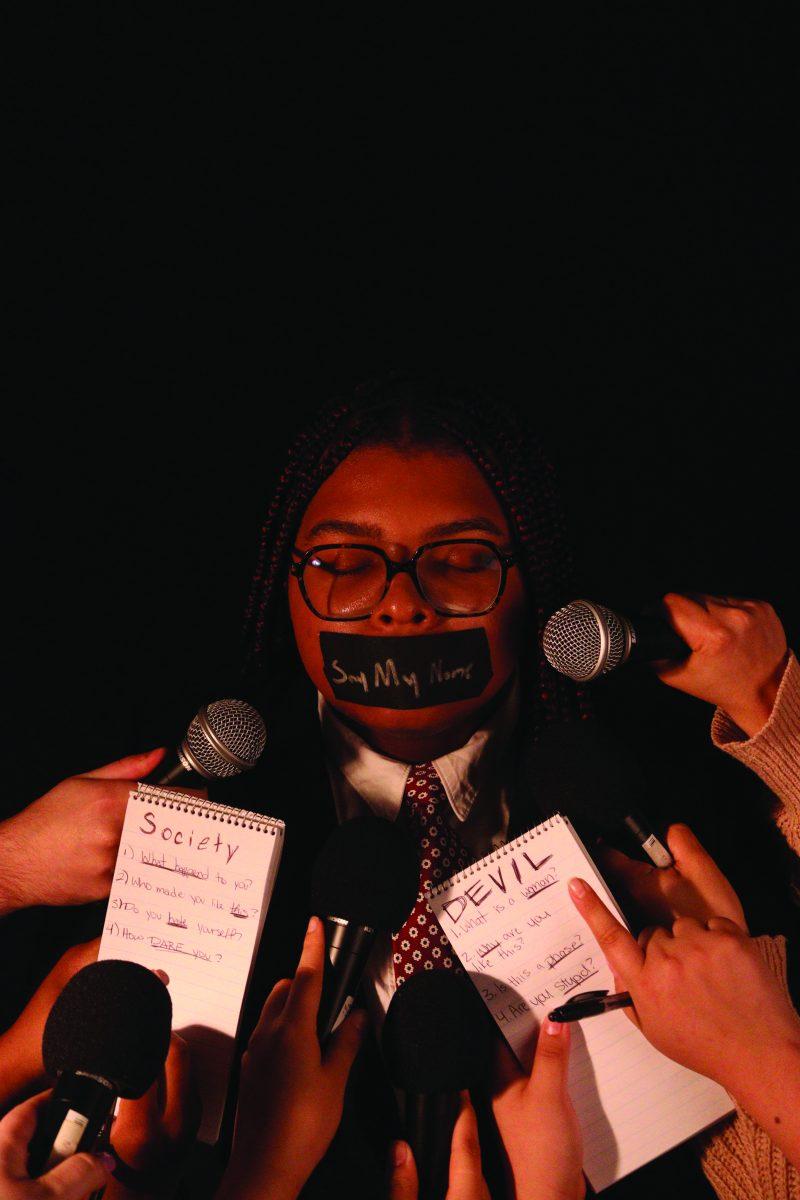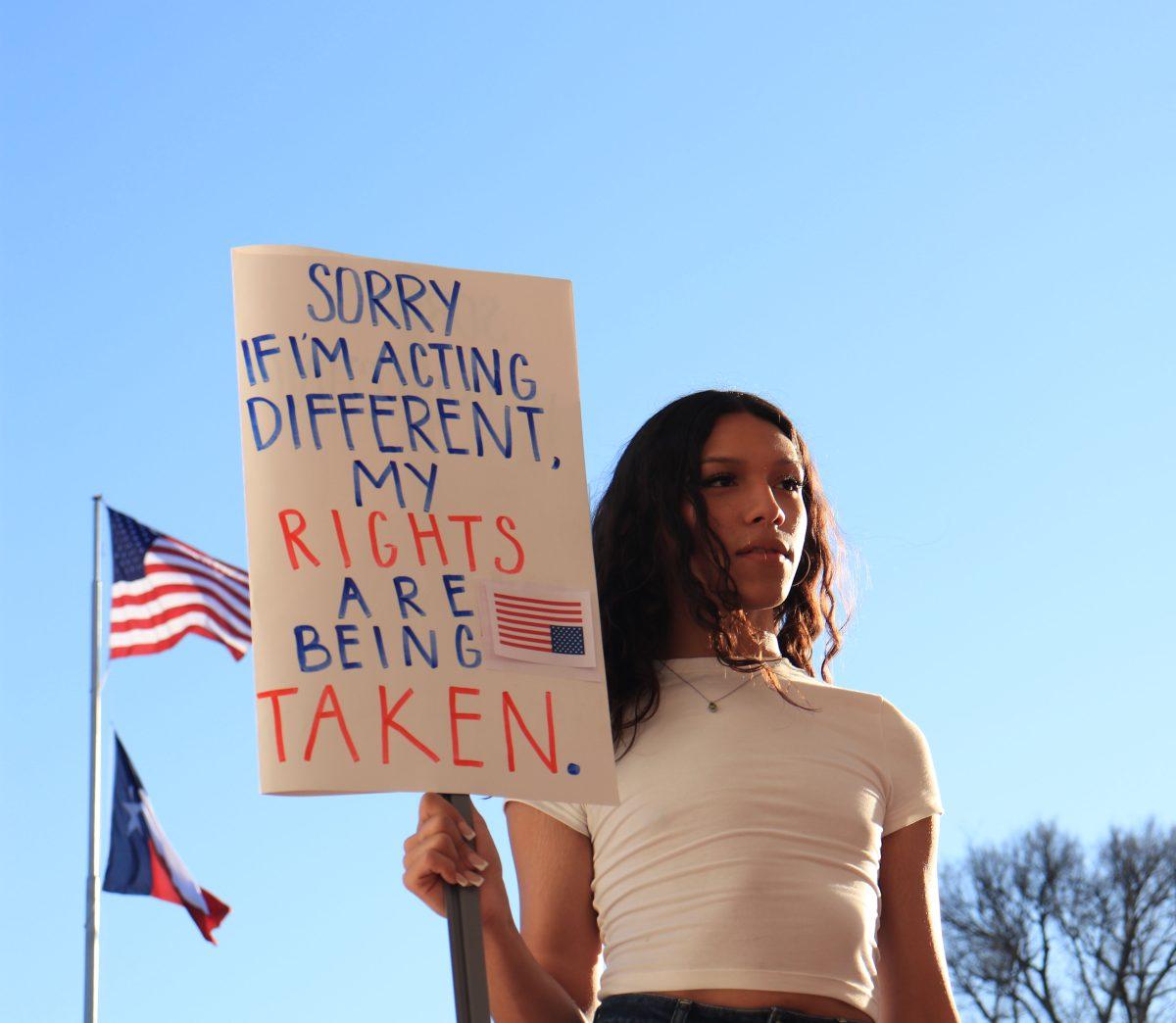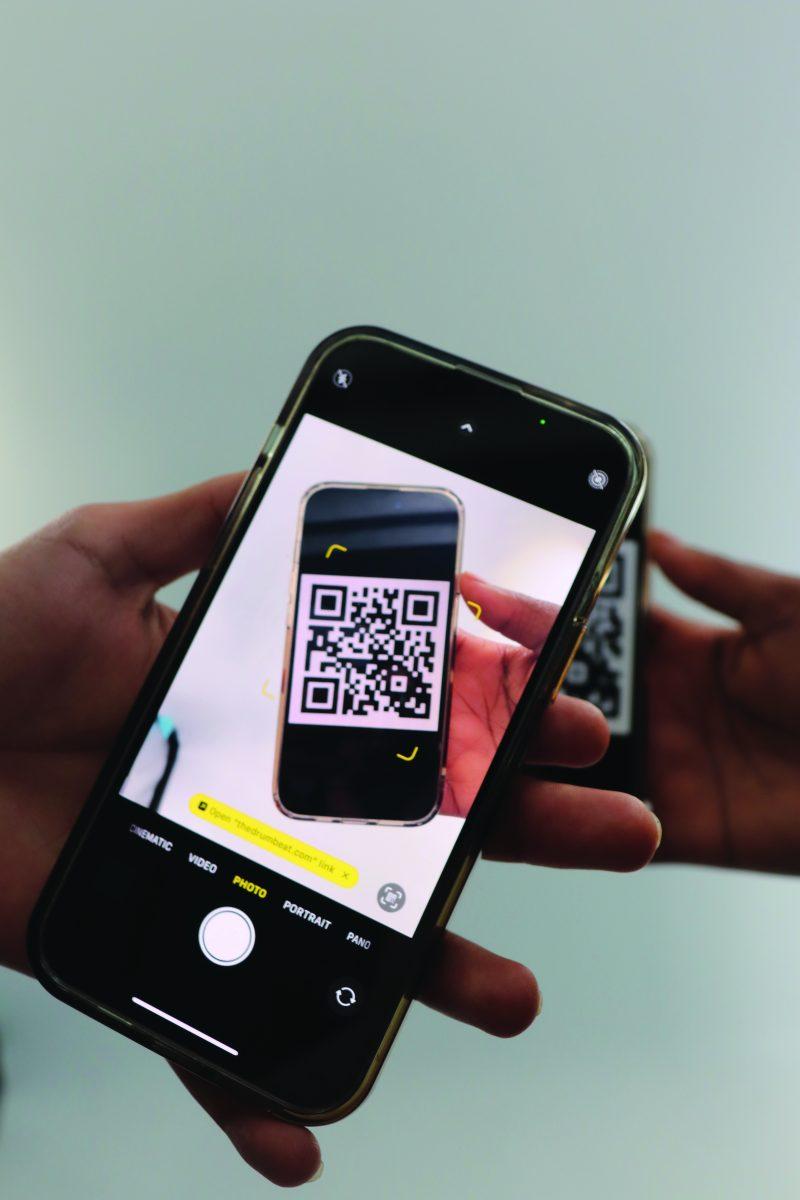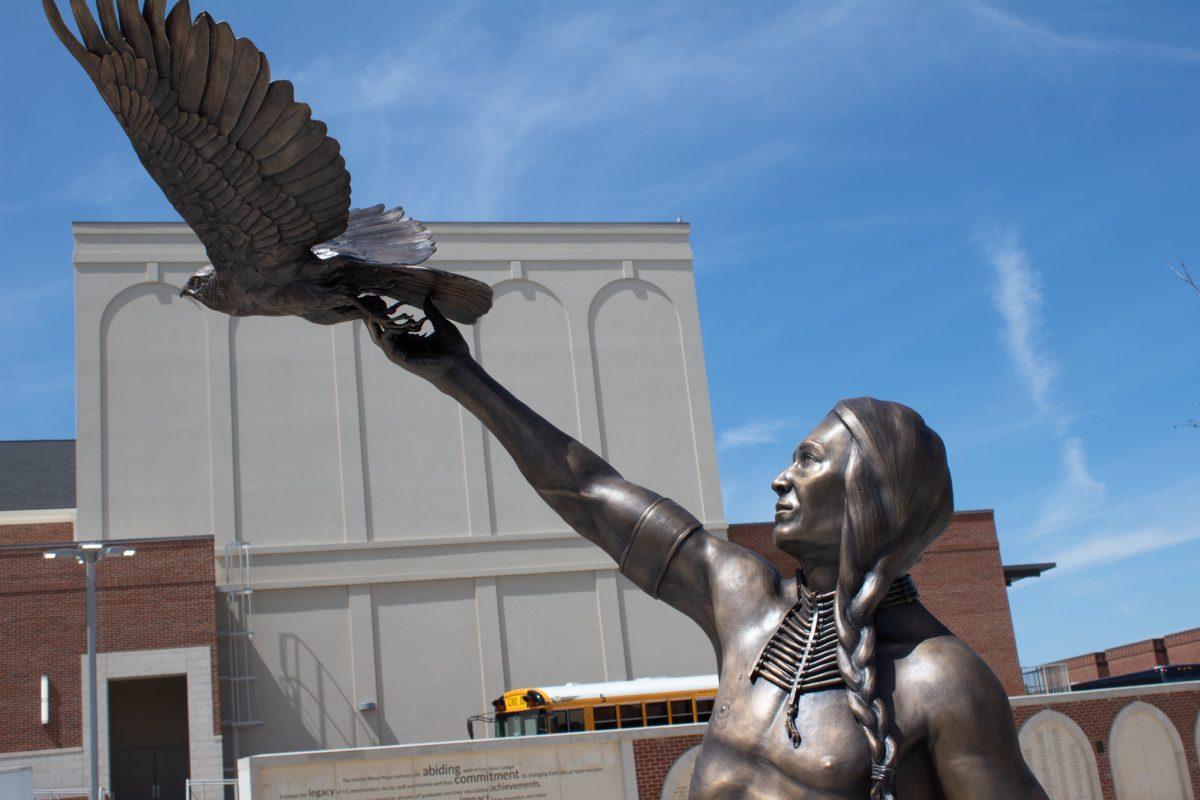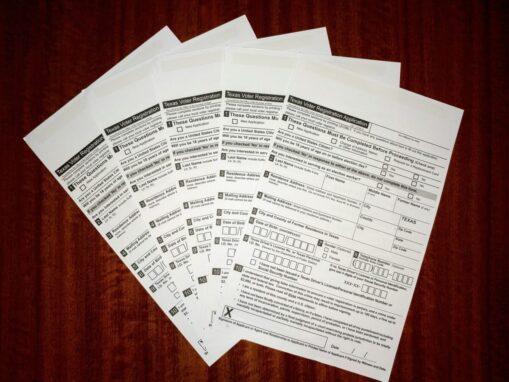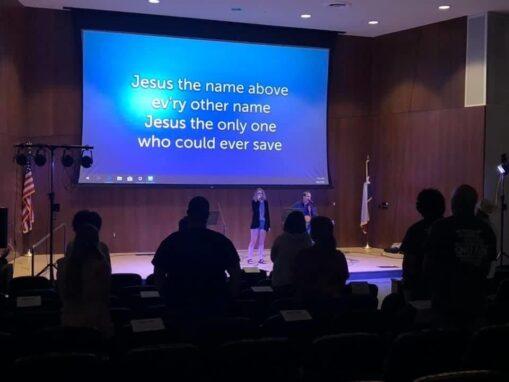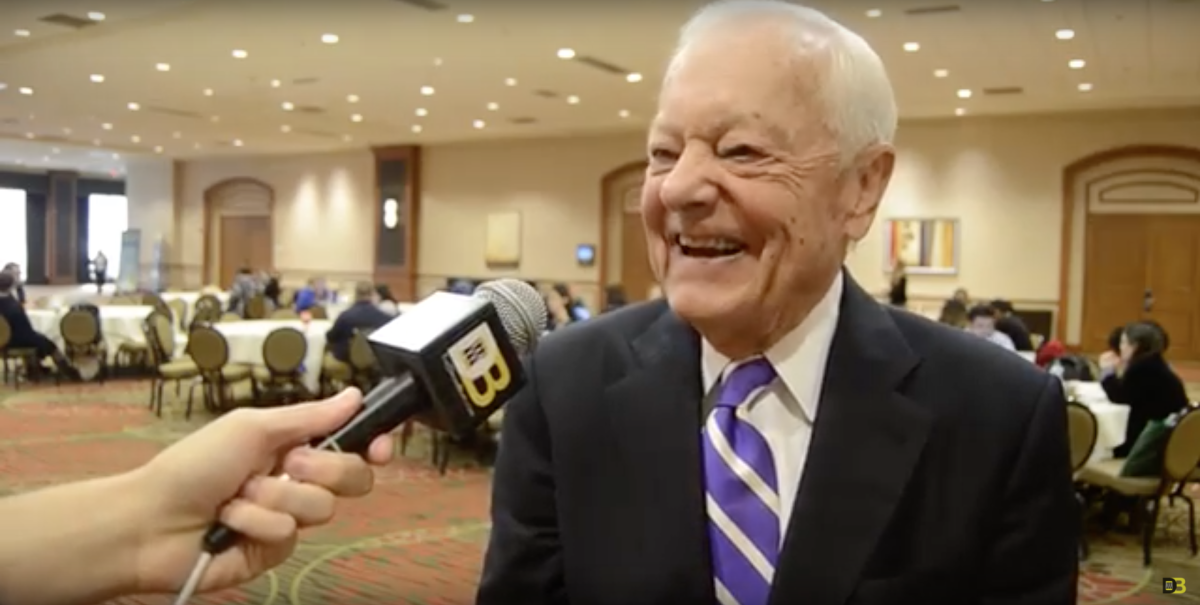TJC has announced a new policy to remove all QR codes in the form that organizations are used to. Lauren Tyler, student life director, explained how this would affect student organizations at the Student Senate meeting on March 5.
According to Pamela Rathburn, the manager of marketing operations, this decision was made to protect the college from QR code scams. According to the Federal Trade Commission, the most common QR code scam is when a scammer puts a sticker QR code over an existing one. The sticker has a QR code that leads to a website that could steal information.
According to the TJC website, a QR code must be created through the marketing department, link only to a webpage, have an embedded TJC Wordmark and it has to use one of the approved designs.

Students have mixed opinions on the ban of QR codes.
“I know that, as the one who makes the slides for the PTK meetings, it has greatly hampered our ability to do check-ins and sign ups,” Nathan Hogan, the vice president of fundraising for Phi Theta Kappa, said. “That’s something I hope to bring up with the next committee meeting because it is a pretty serious issue. But I think that is a lot of panic. I haven’t heard any concrete justification.”
Hogan does not agree with the new QR code policy. He mentioned he sees QR codes as a useful tool.
Rachael Lowery, the executive vice president of the Student Senate, shares her opinion on the QR code policy.
“I think it’s a good idea. I think it’s something to keep us safe. It definitely opened my eyes to something that I had no idea about. I don’t know how many QR codes I scan,” Lowrey said. “And that’s now something that I’ve stopped doing that I don’t want my information to be stolen. So I think it’s an inconvenience, yes. But ultimately, our safety is what matters.”
However, Mike Hiestand, from the Student Press Law Center, has some concerns with this new policy.
“This ban of QR codes, actually it does raise some pretty significant First Amendment concerns. You know, unless they are able to show that these QR codes are inherently dangerous, that it’s a danger that really can’t be addressed,” Hiestand said. “My understanding of a QR code is they’re dangerous if they were created in a dangerous way. By someone wanting to do bad things. I can create a QR code very simply, you could do the same on your own. As long as you control it, as long as you point it to a legitimate website or webpage, there’s no danger.”
As Hiestand mentioned, the removal of QR codes could be a violation of the First Amendment because it is censorship, which is the suppression of freedom of speech. The First Amendment protects United States citizens from censorship, and it gives citizens freedom of speech.
On the other hand, TJC has reasons behind the decision to ban QR Codes.
“Security is always one of our very first priorities of physical things, you know, but also of our data, which is not just TJC data, it is your data as a student,” Rathburn said. “We’d rather have the lesser inconvenience upfront than to have something happen, and we’re all shut down, because that’s a whole lot more inconvenient. So it’s really a proactive step to take. Yes, keep everybody safe. You as a student, y’all as employees, faculty, right, you know, our whole TJC community.”
Kaytee Hassell, the deputy chief information officer and chief information security officer, mentioned how UT Health had a shutdown on Thanksgiving in 2023, which lasted 13 days. According to a CNN article, the hospital wasn’t able to use computers and couldn’t accept ambulances to the emergency room. This was because of a cybersecurity issue. However, the cybersecurity issue was not caused by a QR code. A similar article from KLTV stated the hospital’s network was a victim to a ransomware attack. Another article by CBS 19 also confirmed the cause of the issue.
“Last year, in September, the FBI released an article in discussion about QR code safety for consumers, from a consumer standpoint. In that interim time, we’ve had other companies or community colleges in the area, a community college that we had heard through our sources that had an issue with QR codes, and had a security event come from that. And then in February, Good Morning America had the FBI on their TV show and was going over the QR code issues and security breaches that have been occurring more from a consumer standpoint,” Kristi Cuellar, chief information officer, said. “But since, we know that this had also happened in educational facilities, and the ransomware attacks have been increasing in industries around us, we came up with our QR code policy, and it is more from a platform of educating and users.”
Fbi.gov confirms they have seen a number of QR code scams. The website mentions the scams have involved money stealing and cryptocurrency fraud.
Cuellar mentions the college’s goal is to educate users on QR codes. Cuellar also mentioned how other colleges in the area have been affected by QR code scams, and so did Hassell and Rathburn. However, they declined to say which colleges because of a sharing agreement.
“We use different information sharing agreements, and it goes through state and federal and local agencies, and they use what’s called the traffic lab protocol. And all of that is very explicit on what can and can’t be disclosed. So that gives you a little insight into why we can’t talk about it,” Hassell said.

However, some research showed two colleges that have had incidents with QR codes. According to both of the college’s websites, these QR codes are being sent out in the form of a phishing email. “Lately, Blinn College District has seen an increase in scam emails with QR codes attached,” blinn.edu writes. Additionally, ccit.clemson.edu had a similar scam email in September 2023. “Clemson University employees are recently reporting a new QR Code scam email,” CCIT writes. During this semester, TJC has seen at least two phishing scams, but the QR code policy wouldn’t protect from those. The phishing scams were from senders who appeared reputable, and they were asking for the email recipient to click on a link.
According to the Federal Trade Commission, a phishing email is a type of online scam that targets consumers by sending them an e-mail that appears to be from a well-known source.
Additionally, Rathburn mentioned there will be QR codes made by the Marketing department.
“We looked around and vetted what, at this time, is the highest level of safety QR code generator that works with one of our programs,” Rathburn said. “So we can, you know, they’ve gone to multicolor, the wordmark, there’s enhanced safety around where the wordmark is to try to not make it as easy to stick a sticker over it that has wrong information and could possibly hurt all of us.”
According to Rathburn, if any poster or flyer is put up around campus with a QR code it will be taken down. In Rathburn’s words “they would certainly be asked to pull it all down.”
Hiestand shares his concerns about the enforcement and justification of a QR code ban.
“They can kind of talk about where you can distribute, how you can distribute that sort of thing, but those sorts of regulations all have to be reasonable. I mean they have to show that they are, in fact, addressing a legitimate government need that there is this real, serious danger out there about QR codes,” Hiestand said. “So I think they’re gonna have a hard time doing that to begin with. And then, two, they have to show, in order for, these things to be called reasonable, they have to show that they actually accomplish their goals in the least restrictive manner possible. So if they really do feel that QR codes present a danger, just going out and just doing this wholesale sweep, where you’re just trashing everything that has a QR code is, that is way too much.”
Hiestand goes on to mention that TJC could go through and easily find out which QR codes are unsafe. He says “you could go around and test those QR codes.”
Another concern Hiestand had with the QR code policy is on the advertising side. Some companies put out posters on campus with QR codes. Currently, Meals on Wheels and UT Health East Texas have advertisements with QR codes on campus. He mentions that there could be a problem with the contractual agreement the colleges have with these companies.
The QR code policy has been in effect since it was announced. As a result, policy states, for students who want to put up campus flyers or posters, to refrain from using a QR code without requesting an approved design from the marketing department.












